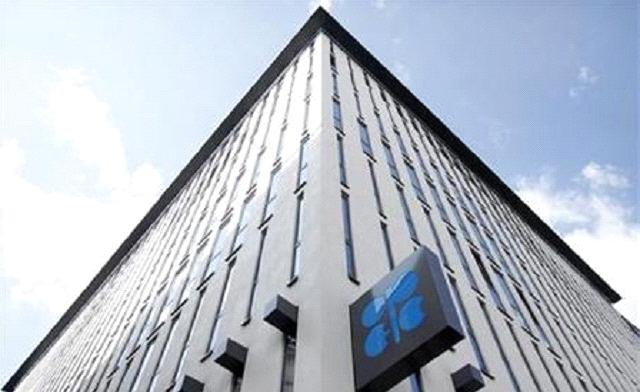Ammon News - By AFP
VIENNA
OPEC holds a meeting in Vienna on Wednesday to decide on the cartel’s oil output levels and to choose a new secretary-general, ahead of a predicted slowing of world energy demand growth that may dent high crude prices.
While the Organization of Petroleum Exporting Countries appeared set to hold its oil production ceiling at 30 million barrels per day (mbpd), there was uncertainty over who would become the group’s new administrative head.
The world’s biggest oil exporter Saudi Arabia was battling against Iraq and political foe Iran to succeed Libya’s Abdullah El-Badri, who has steered the cartel through the financial crisis as its secretary-general since 2007.
OPEC’s meeting “will be dominated by the tricky choice of a new secretary-general, while the decision on output should be relatively simple,” said Julian Jessop, head of commodities research at Capital Economics consultants.
“We agree with the consensus that the notional ceiling will be kept at 30 million barrels per day, at least for now. OPEC probably will cut output next year,” he added.
A vote to pick El-Badri’s successor was postponed in June after OPEC which produces more than one third of the world’s oil failed to reach the required unanimous decision among its dozen member nations. Another delay could see him stay on beyond the maximum of two, three-year terms, analysts said.
The oil ministers of Kuwait and Venezuela were not attending Wednesday’s meeting because of political events in their countries, while it was not known if the absences would affect the outcome of the secretary-general vote.
Asked if OPEC would decide on a new secretary-general at the ministerial meeting in Vienna, home to the cartel’s headquarters, Saudi Oil Minister Ali al-Naimi simply told reporters: “Maybe.”
UAE Energy Minister Mohammed bin Dhaen al-Hamli added: “I hope we will solve this issue” on Wednesday.
Hamli meanwhile insisted that there was “no need to do anything” over OPEC’s current oil production levels. Iran’s Oil Minister Rostam Qasemi added to the expectation of there being no change, stating that crude supply and demand was “relatively balanced” and that “prices are okay.”
OPEC is producing about one million oil barrels above its official daily ceiling, as Saudi Arabia compensates for lost Iranian output caused by a Western embargo on the Islamic Republic, and as other member nations look to maximize profits while oil prices remain high.
World crude futures rose Tuesday on expectations of fresh stimulus measures from the Federal Reserve to perk up the struggling U.S. economy, traders said, with benchmark Brent North Sea oil reaching $108 a barrel.
However an expected in oil demand next year risks dampening crude prices despite a background of Middle Eastern unrest, notably over Iran’s disputed nuclear program.
OPEC “is unlikely to agree to cut back production as long as oil prices remain relatively healthy,” said Tamas Varga, analyst at PVM oil brokers.
“The assumption will be that the Saudis, and perhaps the Kuwaitis, will cut back very quickly if prices start falling.”
OPEC on Tuesday kept its forecast for growth in world oil demand unchanged for this year and next. World oil demand was expected to reach 88.80 mbpd in 2012, up from 88.04 mbpd in 2011, the cartel said in its monthly report.
